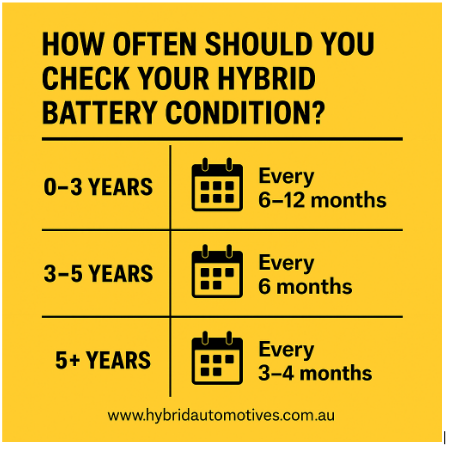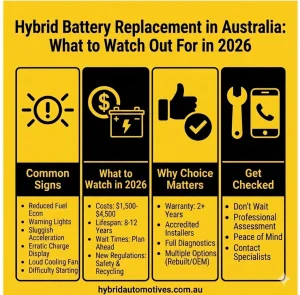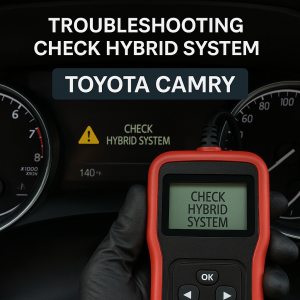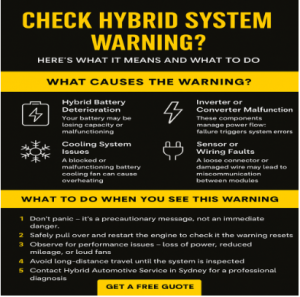
How Often Should You Check Your Hybrid Battery Condition?
Hybrid vehicles are admired for their fuel efficiency and eco-friendliness, but the hybrid battery that powers them is both critical and costly. To ensure long-term performance, regular Battery Health Checks are essential—but how often should you actually get it done? In this article, we’ll explore the ideal inspection frequency, key influencing factors, and expert tips to help you stay ahead of potential hybrid battery issues
Why Checking Hybrid Battery Condition Matters
The hybrid battery is the heart of your vehicle’s electrical system, providing power to start the engine, run electric motors, and support regenerative braking. A failing battery can reduce fuel economy, trigger dashboard warnings, and eventually leave you stranded. Periodic checks allow early detection of performance drops, which can help extend battery life and avoid unexpected replacement costs.
General Recommendations for Hybrid Bttery
Here’s a general guideline on how frequently you should check your hybrid battery condition:
- Every 6–12 Months: For daily drivers using the car under normal conditions.
- Every 3–6 Months: For commercial use (e.g., rideshare, delivery) or high-mileage vehicles.
- Before and After Long Trips: Especially during extreme cold or heat, which can affect battery health.
- After 5 Years or 100,000 KM: Increase frequency to every 3–4 months, as batteries typically begin to degrade around this stage.
Factors That Influence Inspection Frequency
Several conditions affect how often you should check your hybrid battery:
1. Vehicle Age and Mileage
- Older models (e.g., Toyota Prius Gen 2 or Lexus RX 400h) typically show signs of battery wear earlier.
- Higher mileage = higher wear, meaning more frequent checks are required.
2. Driving Conditions
- Stop-and-go traffic puts more strain on the battery than consistent highway driving.
- Urban routes often trigger more frequent charging/discharging cycles.
3. Climate and Temperature
- Batteries degrade faster in extreme heat or cold.
- Dust and debris can clog battery cooling fans, reducing lifespan.
4. Vehicle Usage
- Heavy loads, towing, and frequent short trips all put extra demand on the battery.
- Commercial use increases the risk of early degradation.
Signs You Should Check Sooner
If you notice any of the following symptoms, schedule a battery check immediately:
- “Check Hybrid System” Warning Light
- Decreased Fuel Economy
- Sluggish Acceleration or Rough Starts
- Fan Noise from Rear Seats (Cooling Fan Running Frequently)
- Battery State-of-Charge Display Fluctuations
How to Check Hybrid Battery Health?
You can assess battery condition through the following methods:
DIY Tools:
- OBD2 Scanner + Mobile App (e.g., Dr. Prius, Hybrid Assistant): Useful for basic voltage and module analysis.
- Hybrid System Monitor on Dashboard: Some vehicles show charge-discharge behavior.
Professional Diagnostics:
- Techstream Software (Toyota/Lexus): Provides in-depth data on module voltages, temperature, and charge levels.
- Load Testing: Mechanics use this method to simulate real-world battery stress and evaluate performance.
Integrating Battery Checks into Regular Maintenance
To make hybrid battery inspection part of your routine:
- Align it with oil changes or tire rotations.
- Set digital reminders every 6 months.
- Use service history logs to track battery health over time.
Routine Checks Help with Warranty Claims
Most hybrid batteries come with warranties (often 8 years/160,000 km in Australia). However, manufacturers may require documented service history to approve warranty claims. Regular checks can be vital evidence in case of early failure.




